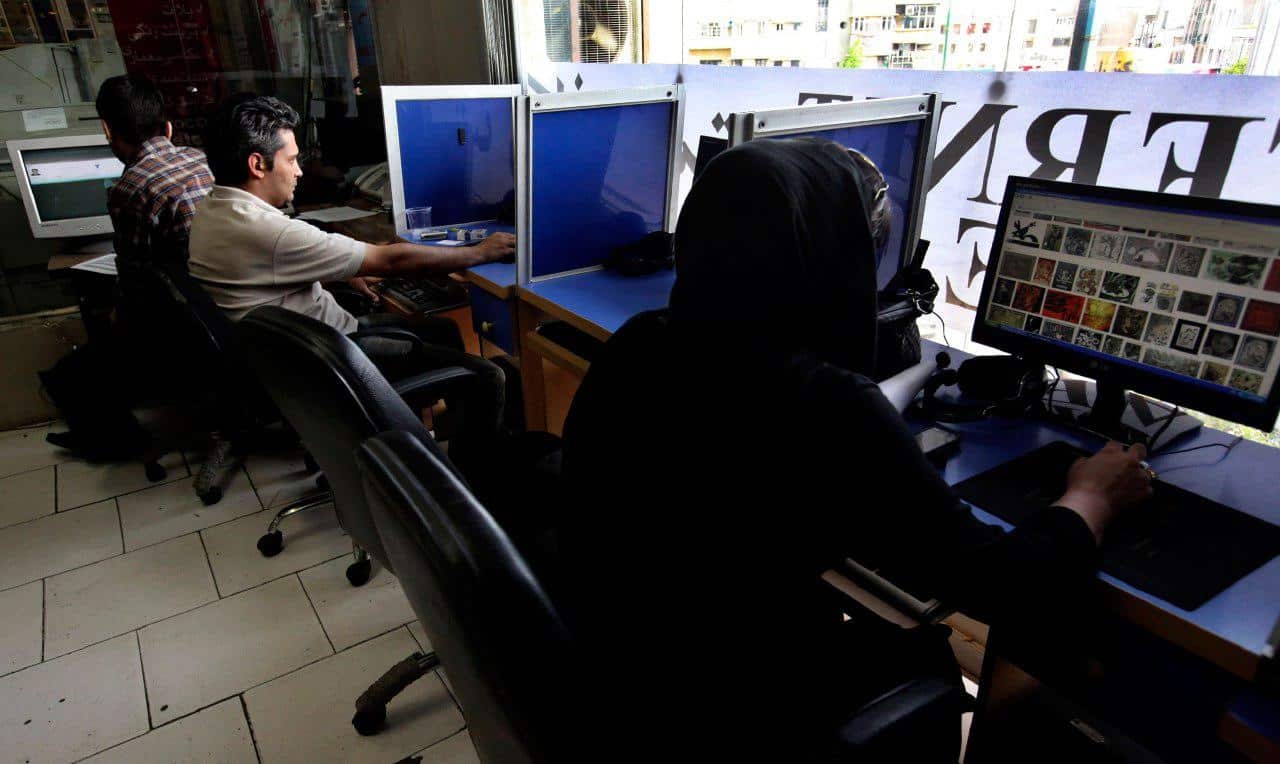

Three-minute read
As global internet access continues to grow, providing unprecedented opportunities for innovation and connection, Iran stands out as a stark outlier. The Iranian regime’s oppressive control over the digital landscape has turned a global asset into a domestic crisis, characterized by heavy filtering, slow speeds, and systematic hypocrisy by state officials. Recent revelations by Abolhassan Firouzabadi, former head of Iran’s Supreme Cyberspace Council, have exposed the regime’s deepening contradictions and failure to control the internet effectively.
A Crumbling Justification for Filtering
In an interview on December 20, 2024, Firouzabadi candidly admitted the failure of internet censorship. “It’s now evident to all that filtering has been ineffective,” he stated, highlighting that tens of millions of Iranians continue to use platforms like Instagram, Telegram, and WhatsApp despite being officially banned. “This makes filtering meaningless,” he added.
Firouzabadi’s remarks also exposed the inherently authoritarian nature of Iran’s domestic platforms. He confirmed that apps like Eitaa are under government control, specifically linked to the Qom Seminary, and are part of the regime’s strategy to replace global platforms with state-controlled alternatives. Despite heavy investments and propaganda, these platforms have failed to gain the trust or traction needed to meet Iranians’ social and economic needs.
Firouzabadi criticized the lack of legal grounding for internet censorship, pointing out that filtering has been imposed “through the persistence of certain groups” rather than by law. His remarks underscored the regime’s flawed strategy of suppressing foreign platforms without providing functional domestic alternatives. He also revealed that initial plans for filtering were intended as a temporary measure, contradicting its current indefinite implementation under the regime’s resident Masoud Pezeshkian, who has intensified these restrictions despite previous campaign promises to ease them.
#Iran News:
Official Admits VPN Profits Stall #Censorship Reforms as Rulers Fear Unfiltered Informationhttps://t.co/GxVWH2cFnD— NCRI-FAC (@iran_policy) November 13, 2024
A Nation of VPNs: The Reality of Filtering
One of the starkest revelations came from former MP Rasoul Rashidi-Kouchi, who stated that 85% of Iranians use VPNs to bypass internet censorship. This widespread reliance highlights the ineffectiveness of filtering and the public’s deep dissatisfaction with the regime’s policies. Kouchi confessed to the hypocrisy of state officials who, while banning platforms like Instagram and X for ordinary citizens, actively use these platforms themselves to promote their agendas.
Firouzabadi echoed these sentiments, emphasizing the futility of trying to control a population increasingly adept at circumventing restrictions. “Filtering is no longer justified in any sense,” he said, adding that the regime’s narrative of protecting cultural values has failed to resonate with the public.
Global Comparisons: Iran’s Digital Isolation
Iran’s internet crisis is becoming even more glaring than other nations. Data from Speedtest places Iran near the bottom of the global rankings for mobile internet speed, far behind even regional peers. The UAE tops the list with 428 Mbps, followed by Qatar at 356 Mbps and Kuwait at 258 Mbps. Iran, however, ranks 72.
These numbers reflect not only technological inadequacy but also the regime’s prioritization of control over progress. While neighboring countries leverage fast internet to foster innovation, Iran’s regime has turned the digital sphere into a battleground for repression, limiting citizens’ access to vital tools for education, business, and social connection.
Why did the #Iranian regime suddenly backed down on its #VPN ban days before the #IranElections2024 pic.twitter.com/dXa0dyMeT1
— NCRI-FAC (@iran_policy) March 2, 2024
Hypocrisy at the Highest Levels
Iranian officials’ use of filtered platforms adds another layer of hypocrisy. Despite public restrictions, thousands of government officials, including members of the Supreme Cyberspace Council, enjoy unrestricted access to the internet. Firouzabadi confirmed this, noting that state actors routinely use VPNs to access banned platforms while condemning ordinary citizens for doing the same.
Moreover, Firouzabadi disclosed that efforts to provide “tiered internet access” for specific groups, such as academics, journalists, and businesses, were thwarted by both government resistance and public backlash against what was perceived as “class-based internet.” This policy failure underscores the regime’s inability to reconcile its repressive practices with the demands of an increasingly connected populace.
Supreme Leader Ali Khamenei has consistently framed the internet as a security issue, claiming it poses a threat to “psychological stability.” His rhetoric reflects the regime’s broader fear of losing its grip on public discourse. Firouzabadi’s admission that domestic platforms are directly linked to government entities, such as the Qom Seminary, further reveals the regime’s intention to centralize control over the digital sphere.
Despite promises from President Masoud Pezeshkian to address these issues, censorship has only intensified. Meanwhile, the regime’s strategy of portraying foreign platforms as threats has failed to hide its own reliance on them, exposing a fundamental contradiction that erodes its credibility both at home and abroad.
Iran’s Cyber Army: A Force of Disinformation for a Cursed Causehttps://t.co/S3LusEN4HB
— NCRI-FAC (@iran_policy) April 26, 2023
A Crisis of Legitimacy
The Iranian regime’s internet policies are emblematic of its broader failures. By prioritizing control over connectivity, it has alienated its citizens, stifled economic opportunities, and isolated itself from global progress. Firouzabadi’s revelations serve as a stark reminder of the regime’s unsustainable approach, highlighting the growing divide between the government’s authoritarian impulses and the public’s demand for freedom.
As Iran lags behind the world in digital development, the regime’s hypocrisy becomes increasingly untenable. Whether through VPNs or grassroots protests, Iranians continue to resist, making it clear that no amount of censorship can silence their call for change.










